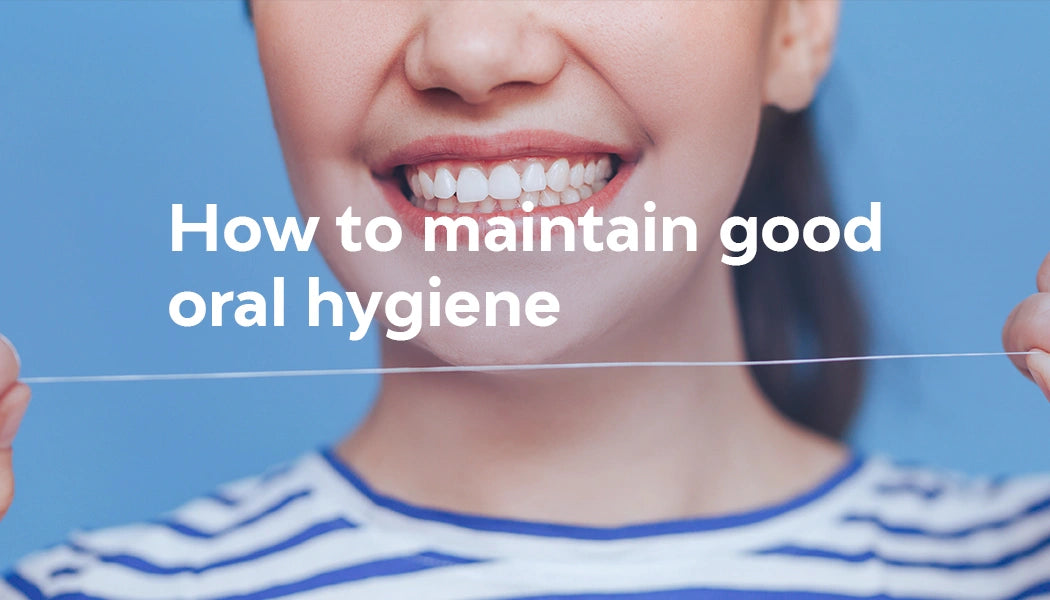
Tips for good oral hygiene
How to maintain good oral hygiene?
Oral hygiene is a key component of our bodily health. Good oral hygiene can lead to healthy teeth and gums, which in turn can prevent toothaches and infections. Find out more about the importance of good oral care, what it entails, and how you can maintain it.
What is oral health?
The technique of maintaining a healthy, disease-free mouth is known as good oral care. This entails frequently flossing and brushing your teeth, as well as going to the dentist for checkups.
Oral health is important for many reasons. First, it helps to prevent bad breath. Second, it can help to prevent tooth decay and gum disease. Finally, good oral hygiene can help to improve your overall health. There are many ways to maintain good oral hygiene, but the most important thing to do is to brush and floss your teeth every day.
Using herbal toothpaste helps to provide the ultimate protection for your teeth naturally and improves the overall hygiene of your oral care. Nowadays, several companies are manufacturing natural toothpaste for teeth.
How to maintain good oral hygiene?
Our mouths are home to millions of bacteria. While some of these bacteria are essential for our health, others can cause tooth decay and gum disease. So it is essential to practice good oral hygiene habits daily. Recent research has demonstrated a connection between dental problems and internal illnesses like diabetes and cardiovascular disease. This is why it’s so important to provide the best possible home oral care for yourself! The following tips can help you maintain a healthy mouth!
Good oral hygiene is essential to keeping your mouth healthy and free of disease. There are a few simple things you can do to maintain good oral hygiene and they are discussed below in this article.
7 Tips for maintaining good oral hygiene
There are a few things you can do to maintain good oral hygiene. First, brush your teeth twice a day with a soft-bristled toothbrush. Never forget to floss your teeth. Finally, make it a point to visit your dentist on a regular basis for professional cleanings and checkups. Use herbal toothpaste for teeth to ensure more safety for your oral care and enhance toothpaste benefits. By following these simple tips, you can help keep your mouth healthy and avoid cavities and other dental problems. Now, let’s look at the tips for maintaining good oral hygiene:
1. Brush twice daily regularly but not aggressively
Most people think that brushing twice a day helps eliminate bacteria and plaque from their teeth and maintains healthy teeth daily contributing to toothpaste benefits. But the fact is that, along with brushing, there are some more steps to be followed for effective oral hygiene.
It is good to follow a circular motion while brushing, by taking care to brush the top, back, and front of every tooth. This technique for brushing may take 2 to 3 minutes, but it helps in offering adequate hygiene to your tooth. In addition to this, people should also try to avoid back-and-forth motives and sawing while brushing.
Too forceful of a brush stroke or the use of a firm-bristled toothbrush can harm the gums and tooth enamel. Gum erosion, tooth sensitivity, and long-term harm to the enamel’s protective coating may all result from this. In addition, it is good to use natural toothpaste for teeth to ensure more care for the teeth and mouth to enhance toothpaste benefits.
It is advised by the American Dental Association (ADA) to use a toothbrush with soft bristles. Additionally, they advise changing toothbrushes after three months or, whichever comes first, when the ends begin to fray.
2. Floss once a day
Using floss, you may get rid of plaque and bacteria between teeth where a toothbrush can’t reach them. Additionally, flossing aids in eliminating food particles caught between the teeth and clearing away other waste.
Despite the lack of thorough data to back its advantages, the ADA nonetheless recommends flossing. People should floss their teeth, according to the Centers for Disease Control and Prevention (CDC).
The majority of dental professionals advise gently guiding the floss to the gum line before hugging the tooth’s side with up-and-down motions. Avoid snapping the floss up and down between the teeth since it can hurt and reduce the floss’s ability to remove plaque.
3. Use fluoride
Fluoride is extracted from fluorine which is seen in the soil. Experts believe that fluoride is a common ingredient that helps to prevent cavities and that’s why it is used as a common ingredient in toothpaste and mouthwash. But, anyway, some people don’t use fluoride and some oral care products are made without fluorides.
Evidence suggests that a lack of fluoride can promote tooth decay even in those who normally take good oral care. According to a recent study, brushing and flossing alone do not protect against cavities if fluoride is not used. The type of paste that people use also matters, Using natural toothpaste is better for your oral care.
By getting in touch with their local authorities, people can learn whether the water in their area contains fluoride. People who utilize well water will need to check the fluoride levels in this water to determine how much is present as reverse osmosis water filters eliminate fluoride. Many brands of bottled water don’t have fluoride in them.
Read Also: How to Reduce Stress and Anxiety Naturally: 6 Easy Tips
4. Consult a dentist regularly
People should visit the dentist every six months for a routine check-up is one of the best methods to follow healthy oral hygiene. A hygienist will clean the teeth, get rid of tartar that has developed, and perform a routine dental exam.
During the checkup, the dentist will check on signs of cavities, gum disease, mouth concerns, or any other oral issues to offer better oral care. In addition to this, these dentists will also check on sometimes dental X-rays to confirm oral health.
According to a recent study, it is mentioned that consulting a dentist every six months is good for children and adolescents to reduce cavities. At the same time, practising dental hygiene daily helps to lower oral health problems for adults and may not require them to consult the dentist frequently. But after all, a person can directly ask the doctor about their checkup time and it varies on a person’s age, health history, and dental health. In addition, anyone who sees a change in their mouth can also visit a dentist.
5. Use mouthwash regularly
Certain mouthwashes may be beneficial for oral health, according to some research. For instance, a review discovered that mouthwash with the antibacterial component chlorhexidine reduces the risk of gingivitis and plaque. A meta-analysis found that mouthwashes containing specific essential oils are also efficient.
The ideal mouthwash for a person’s specific needs can be determined by asking their dentist. Although it cannot replace brushing and flossing, mouthwash can enhance these habits. So try using natural herbal toothpaste and mouthwash daily to provide the ultimate protection for your teeth and gums.
6. Quit smoking
Smoking impairs the immune system of the body, making it challenging for the body to recover tissues, including those in the mouth. Smoking is listed as a risk factor for gum disease by the CDC, and the American Dental Association warns that smoking may cause a patient’s recovery from dental work to be more difficult.
Smoking harms the breath’s odour and the teeth and tongue look by causing discolouration.
7. Consume less sugary foods & starches
Cavities can result from consuming sugar. Studies keep emphasizing how important sugar is in poor tooth health results. Candy and pastries are common offenders, but many processed foods also include added sugar. The WHO advises consumers to keep their daily sugar intake under 10% of calories. According to the authors of a systematic review, lowering this to 5 per cent would further lessen the incidence of cavities and other oral issues.
In addition, starchy foods like crackers, bread, chips, and pasta have been linked to dental decay by experts. According to the American Dental Association (ADA), these meals stay in the mouth and decompose into simple sugars, which acid-producing bacteria feed on. Later, this acid may cause tooth decay. The ADA advises consuming a lot of fibre-rich fruits and vegetables in place of starchy foods, as well as dairy products without added sugar.
Always be sure to talk to your dentist if you have any problems related to oral hygiene. They can provide you with personalized tips and advice on how to keep your mouth healthy and avoid dental problems. In addition, use natural toothpaste for teeth like Dhathri Complete Ayurvedic Care Toothpaste to offer the best protection to your teeth and to maintain healthy oral hygiene.
